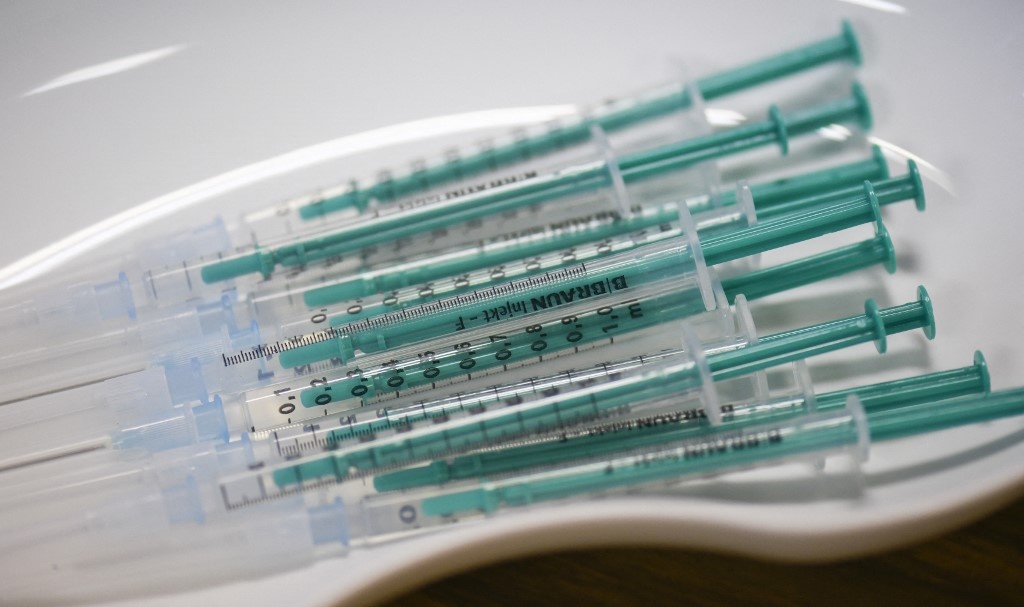New race begins with COVID-19 oral medications
 |
| New race begins with COVID-19 oral medications, illustration photo, THOMAS KIENZLE / AFP |
Merck, known as MSD outside the United States and Canada, has entered into voluntary licenses with eight Indian generic manufacturers to accelerate affordable global access to Molnupiravir, an oral antiviral medicine developed by MSD in collaboration with Ridgeback Biotherapeutics that reduces the ability of SARS CoV 2 to multiply in the body.
An MSD representative told VIR, “These manufacturers were selected because of their global capabilities and their history of supplying quality-assured medicines to global public health efforts, such as those of the Global Fund and UNICEF. These partners are licensed to supply to more than 100 countries around the world, including Vietnam.”
Through eight voluntary licenses partners, people in Vietnam will be able to access Molnupiravir once authorised or approved, so that the investigational oral anti-viral treatment could help keep mild-to-moderate COVID-19 patients away from hospitalisation and prevent disease progression. “This could help to ease the burden of Vietnam’s healthcare system and help resume normal ways of life,” the representative added.
Vietnam is assessing the efficacy of the pill and waiting for the authorisation and approval of Molnupiravir from international health regulators, including the US Food and Drug Administration (FDA) and the World Health Organization to enable it to make the next steps with COVID-19 treatment.
The Southeast Asian nation on November 6 announced positive results of pilot use of Molnupiravir for treatment of mild and moderate COVID-19 patients in 22 cities and provinces. It plans to expand the pilot to more localities shortly.
In addition to Molnupiravir, Vietnam and the world are also waiting for international authorisation for Pfizer’s oral antiviral Paxlovid. Only a few days after the UK’s approval for the use of Merck’s, Pfizer ceased enrolment in its phase 2/3 study of Paxlovid due to “overwhelming efficacy”. Analysis shows Paxlovid cuts the risk of hospitalisation or death from COVID-19 by nearly 90 per cent.
Pfizer has announced that it will submit the data to the FDA as part of its ongoing rolling submission as soon as possible. Meanwhile, the United Kingdom became the first country to authorise Molnupiravir, and the European Medicines Agency and the Heads of Medicines Agencies started reviews of Molnupiravir to support possible national decisions on early use.
The pills are expected to bring about a huge profit for MSD and Pfizer as well, as countries are rushing to purchase the medication amid a stubbornly-high number of COVID-19 infections despite aggressive vaccination programmes. Countries including Australia, South Korea, and Singapore have made deals to purchase courses of the drug ahead of their pending approval.
Moody’s SVP Michael Levesque said, “The UK authorisation of Molnupiravir has positive credit implications for MSD in the short and medium term. The drug has high earnings potential over 2021-2022“.
MSD has vowed to make the drug available internationally, assuming it passes the requisite regulatory hurdles. Developing nations could pay approximately $20 for a single course of the medication, while countries such as the US spend more than $700. The UK has purchased some 480,000 courses of the drug. MSD has invested billions of US dollars in COVID-19 research, development, and manufacturing efforts, mobilising its scientific expertise and resources to contribute to the global pandemic response.
In anticipation of the results from trials, MSD has been producing Molnupiravir at risk. It expects to produce 10 million courses of treatment by the end of 2021, with more doses expected to be produced in 2022.
Meanwhile, Pfizer is in active discussions with 90 countries over supply contracts for the drug and President Joe Biden has said the US government has already secured millions of doses. The US pharma giant plans to produce more than 180,000 courses of treatment by end-2021 and at least 50 million next year.
Industry insiders, however, said the duration of Molnupiravir revenues will depend on the evolution of the pandemic and is unlikely to provide sustained improvement in Merck’s credit metrics.
Before Molnupiravir and Paxlovid, multinational corporations have already been in the race of COVID-19 vaccines, which brought about huge profits for them. According to campaigners from the People’s Vaccine Alliance, Moderna, BioNTech, and Pfizer are reaping astronomical and unconscionable profits due to their monopolies of pandemic-related vaccines – upwards of 69 per cent profit margins in the case of Moderna and BioNTech – while Moderna and Pfizer are also paying little in taxes. Both Pfizer and MSD said they are committed to equitable access at an affordable price.
What the stars mean:
★ Poor ★ ★ Promising ★★★ Good ★★★★ Very good ★★★★★ Exceptional
Themes: Healthcare Platform
- Opella and Long Chau join forces to enhance digestive and bone health
- Hanoi intensifies airport monitoring amid Nipah disease risks
- Cosmetics rules set for overhaul under draft decree
- Policy obstacles being addressed in drug licensing and renewal
- Sanofi, Long Chau Pharmacy relaunch medicine blister pack collection initiative
Related Contents
Latest News
More News
- Rising consumption and travel fuel ‘Tet season’ stocks (February 11, 2026 | 11:43)
- Education as strategic capital: why Dwight School Hanoi represents a long-term investment in Vietnam’s future (February 10, 2026 | 19:00)
- Green logistics–the vital link in the global energy transition (February 09, 2026 | 19:35)
- Wages and Lunar New Year bonuses on the rise (February 09, 2026 | 17:47)
- Temporary relief for food imports as businesses urge overhaul of regulations (February 07, 2026 | 09:00)
- Opella and Long Chau join forces to enhance digestive and bone health (February 06, 2026 | 18:00)
- Vietnam-South Africa strategic partnership boosts business links (February 06, 2026 | 13:28)
- Sun PhuQuoc Airways secures AJW Group support for fleet operations (February 06, 2026 | 13:23)
- Pegasus Tech Ventures steps up Vietnam focus (February 05, 2026 | 17:25)
- The generics industry: unlocking new growth drivers (February 04, 2026 | 17:39)

 Tag:
Tag:




















 Mobile Version
Mobile Version